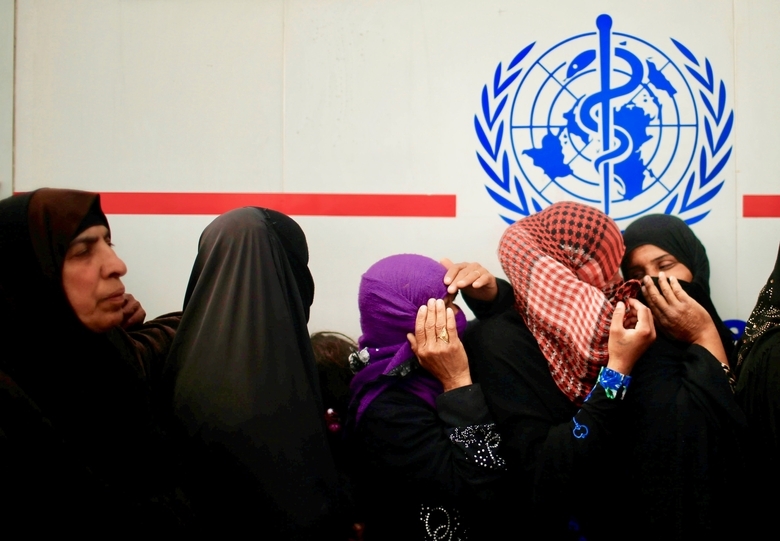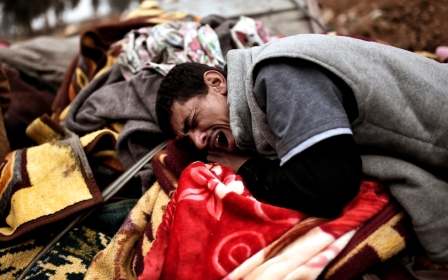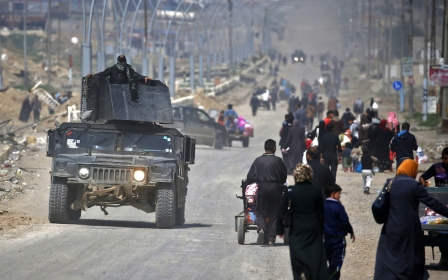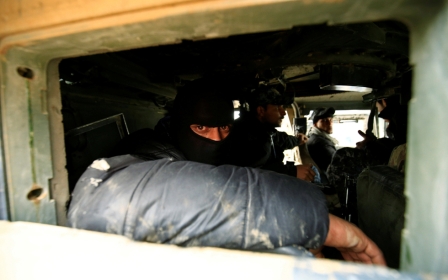UN secretary-general calls for more aid as people flee Mosul

United Nations Secretary-General Antonio Guterres called on world powers to increase aid to help people fleeing the Iraqi city of Mosul, which government forces have been battling to retake from the Islamic State (IS) group.
Iraqi forces have seized back most of the country's second-largest city from the Sunni hardline group in a massive six-month campaign.
But at least 355,000 residents have fled fighting, according to the government, and some 400,000 civilians remain trapped inside the densely populated Old City where street battles have raged for weeks.
"We don't have the resources necessary to support these people," Guterres told reporters during a visit to the Hassan Sham Camp, one of several centres outside Mosul packed with civilians escaping the fighting.
The UN and Iraqi authorities have been building more camps but struggle to accommodate new arrivals, with two families sometimes having to share one tent.
"Unfortunately our programme is only 8 percent funded," he said, referring to a 2017 UN humanitarian response programme without giving additional details.
During his visit, which lasted about half an hour, residents complained to Guterres about the quality of drinking water and poor living conditions in tents frequented by mice and insects.
"We want to go back to our villages. We are fed up," said Saqr Younis, who fled to Mosul when IS arrived in his village in 2014.
"If we had died by bombardment it would have been more merciful," said Saqr, who has been in the camp for four months.
Many of the displaced have returned to their homes in areas retaken from IS, but some, like Saqr, have not yet been allowed to return by the authorities.
The militant group overran about a third of Iraq in 2014, benefiting from the Sunni-Shia rift that weakened the army.
Iraqi forces have won back control of most cities that fell to the group and the militants have been dislodged from nearly three-quarters of Mosul, but remain in control of its centre.
On Friday, IS fired at least 18 rockets from western Mosul into the eastern part which Iraqi forces have retaken, the city's police chief Brigadier General Wathiq al-Hamdani told Reuters.
Machine-gunfire and mortars could be heard in the area of the old city, but as in previous days there was no new push by government forces.
State television said the air force bombed an IS position in Baaj, about 130km west of Mosul near the Syrian border.
Government positions have reached as close as 500 metres from the al-Nuri Mosque, from where IS leader Abu Bakr al-Baghdadi declared a caliphate spanning parts of Iraq and Syria in July 2014.
Baghdadi and other IS leaders are believed to have left the city, but US officials estimate about 2,000 fighters remain there, resisting with snipers hiding among the population, car bombs and suicide trucks targeting Iraqi positions.
New MEE newsletter: Jerusalem Dispatch
Sign up to get the latest insights and analysis on Israel-Palestine, alongside Turkey Unpacked and other MEE newsletters
Middle East Eye delivers independent and unrivalled coverage and analysis of the Middle East, North Africa and beyond. To learn more about republishing this content and the associated fees, please fill out this form. More about MEE can be found here.




